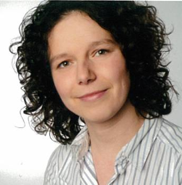
Profile
Nicole Georgi received her Master of Science degree from the Dresden University of Technology after a 9 months research visit to the Regenerative Medicine Lab of Prof. Dr. Dietmar Hutmacher (Brisbane, Australia). Currently she is performing PhD research at the department of Developmental BioEngineering at the University of Twente under the supervision of Dr. Marcel Kaperien. She will complete her PhD research at the end of 2012. Her research already led to three successful publications as well as a personal scholarship of the German Academic Exchange Service for her research visit to the Cartilage Regeneration Laboratory (CRL) of Travis Klein (Brisbane, Australia) from September 2011-December 2011.
Current research
In cartilage tissue engineering, chondrocytes and MSCs are commonly used for cartilage regeneration. The challenge in using chondrocytes and MSCs for cartilage tissue engineering lies in designing a microenvironment to provide the instructive signals to differentiate MSCs and keep the undifferentiated state of chondrocytes. A limiting factor is the isolation of differentiated chondrocytes in sufficient numbers to form tissue constructs of an appropriate size.
The strategy of employing MSCs for cartilage regeneration is still at an early stage. Chondrogenesis of MSCs is a complex process controlled by cellular interactions with the surrounding matrix, growth and morphogenetic- other environmental influences. However, MSC are usually not available in adequate numbers and hard to maintain in the undifferentiated multipotent state during expansion. We already demonstrated that MSCs in co-culture with chondrocytes can lead to improved chondrogenic matrix formation [1].
Current work of my PhD focuses on the optimization of the use of MSCs in cartilage tissue engineering as well as their use in co-culture approaches. By using optimized culture conditions I try to improve the differentiation potential of MSCs and further investigate their role in co-culture models with chondrocytes [2,3]
Publications:
- L. Wu, J.C. Leijten, N. Georgi, J.N. Post, C.A. van Blitterswijk, M. Karperien, Trophic effects of mesenchymal stem cells increase chondrocyte proliferation and matrix formation, Tissue Eng Part A 17 (2011) 1425-1436. DOI
- T.J. Klein, S.C. Rizzi, J.C. Reichert, N. Georgi, J. Malda, W. Schuurman, R.W. Crawford, D.W. Hutmacher, Strategies for zonal cartilage repair using hydrogels, Macromol Biosci 9 (2009) 1049-1058. DOI
- L.S. Moreira-Teixeira, N. Georgi, J. Leijten, L. Wu, M. Karperien, Cartilage tissue engineering, Endocr Dev 21 (2011) 102-115. DOI
Nicole Georgi defended her thesis titled “Multiple choice: Leveraging Instructive Culture Models to Improve Cartilage Tissue Engineering” on 22 March 2013
CONTACT DETAILS
E-mail: n.georgi@utwente.nl
